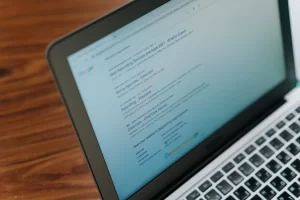As you dabble with the SEO needs of your website, it’s easy to get too engrossed with the perception of what SEO is and overlook what it’s really all about. Always remember that optimising a website primarily hinges on the idea of ensuring a trouble-free online experience and, yes, part of it requires you to go the extra mile to protect your users from viruses and malware attacks. You can just imagine how much traffic your site loses when visitors liken it to a Pandora ’s Box laden with malicious applications.
The industry has always questioned the impact hackers and malware have on a site’s performance in search engines, it’s slowly dawning on today’s digital marketers that web security, or the lack thereof, can have an effect on your site’s ranking. In fact, many are seeing how setting up preventative security measures against cyber threats has become crucial in Google’s evaluation of each unique domain.
Does Web Security Factor in Google’s Algorithms?

It may not come as a surprise at this juncture but, yes, security is one of the Google ranking factors. It may still be shrouded in an air of mystery but largely thanks to expert study and analysis over the years we now know Google has over 200 ranking factors that they use for their search algorithms. In a blog, Google reveals that website security is, indeed, a top priority. In fact, they have invested heavily in making sure that services like Google Drive and Gmail use unparalleled security measures so everyday users can safely enjoy their online experience on the platform.
As you gain a deeper understanding of what factors into Google’s search algorithm, it’s easy to see how SEO goes far beyond simple link building and content creation.
Website Security Holds Weight in Any SEO Campaign
Ask yourself this: when was the last time you talked about cybersecurity during your SEO strategy meetings? If you’re scratching your head for answers, know that such an oversight is common. The truth is that website security is typically neglected (and even outright rejected) by companies discussing their long-term digital marketing plans. This shouldn’t be the norm, however.
By being proactive in covering the bases that the competition refuses to recognise, like putting Web security protocols in place, you actually set your brand apart from the rest. If you ask us, it’s a step worth taking to become a true trailblazer in your online business’ niche.
Although businesses are still trying to grasp the importance of protecting virtual assets even in this time and age, you don’t have to follow the same mold. Assess on-site vulnerabilities alongside your site audits and your SEO campaign will be taken to the next level.
What Happens if My Website’s Security Gets Compromised?
According to a popular cybersecurity magazine, a website attack occurs every 39 seconds and most of them are automated in nature. With artificial intelligence used to deliver targeted, automated hacking, you have to understand that such threats don’t discriminate. They will attack your website regardless of its popularity and size.
When such unseen threats successfully compromise your website’s line of defense, expect to suffer one or all of these dire consequences:
- Crawling Errors
A significant portion of website traffic comes from bots and 24.1% of them crawl websites for purposes of data theft, content scraping, and vulnerability detection. Even if the majority of attempts from these malicious bots are unsuccessful, they can prevent Google’s bots from sufficiently crawling your portal. When that happens, expect pages of your website to be missing on Google Search.
This isn’t the only nefarious thing that malicious bots do. Leave your site’s server open to repetitive, automated attacks over a certain timeframe and this can result in throttling of Web traffic. Your server will subsequently stop serving pages to visitors altogether, ultimately rendering all your ongoing SEO efforts futile.
- Blacklisting
A site that has been compromised by cyber-attacks can distort SERPs, which can get it slapped by a range of hard-hitting penalties from Google and other search engines. Aside from that, being flagged for malware gets the website blacklisted; meaning, your internal pages won’t show up on search results at all. Your site’s rankings will subsequently suffer a tremendous blow and this should be enough motivation to clean up your site from the infection just so you can ensure your current penalties are revoked.
We can’t emphasise enough how web security has to be a major consideration when you’re heavily invested in long-term search visibility, reliant on organic traffic, and vying in a competitive niche. After all, an infected website is technically removed from the Internet until it has been fixed, immediately disrupting any traction the site has gained in its SEO campaign.
- Spamdexing
Among the most devastating attacks against vulnerable sites come in the form of SEO spam, wherein normal sites get injected by keywords and links that lead users to another portal that is primarily designed to rip people off. Those sites look like a scam at first glance but the fact that it enlists innocent, even legit, websites to become unwilling participants in its shady operation is what makes it twice as harmful to the victims.
Get your website infected by this malicious operation and you’ll eventually discourage legitimate visits and bait in unwary visitors with phishing links. Not only that but your site can also be blacklisted for content spamming, eventually doing irreparable damage to the solid business reputation you’ve carefully built on the web over the years.
Protecting Your Site, Keeping the Web Safe
Cybersecurity has a direct impact on your website’s SEO performance and the sooner you decide between HTTP vs. HTTPS, the better. Deliberately not shoring up your site’s defenses and leaving the protection of your virtual platform to chance is counterproductive and will only throw any success you’ve had in your SEO efforts out the window.
Although you may have to pay a little extra to get your site protected from a growing list of cybersecurity threats, the investment may be all worth it. Think of it as your contribution to making sure the internet remains a safe platform for every netizen in the years to come.




